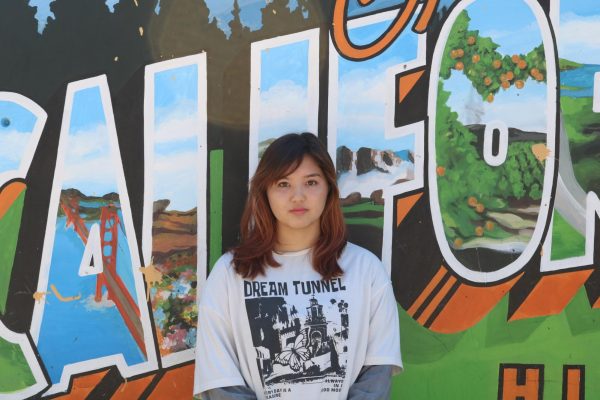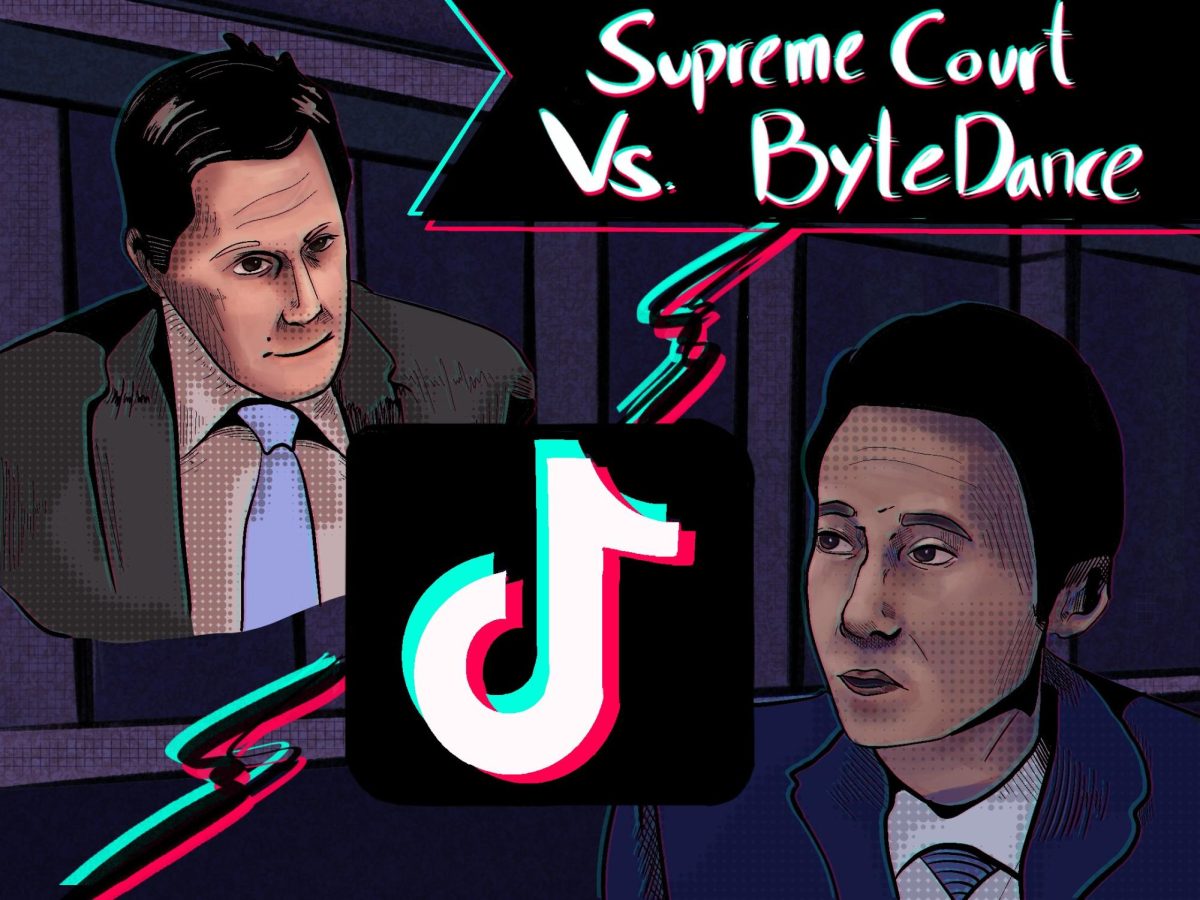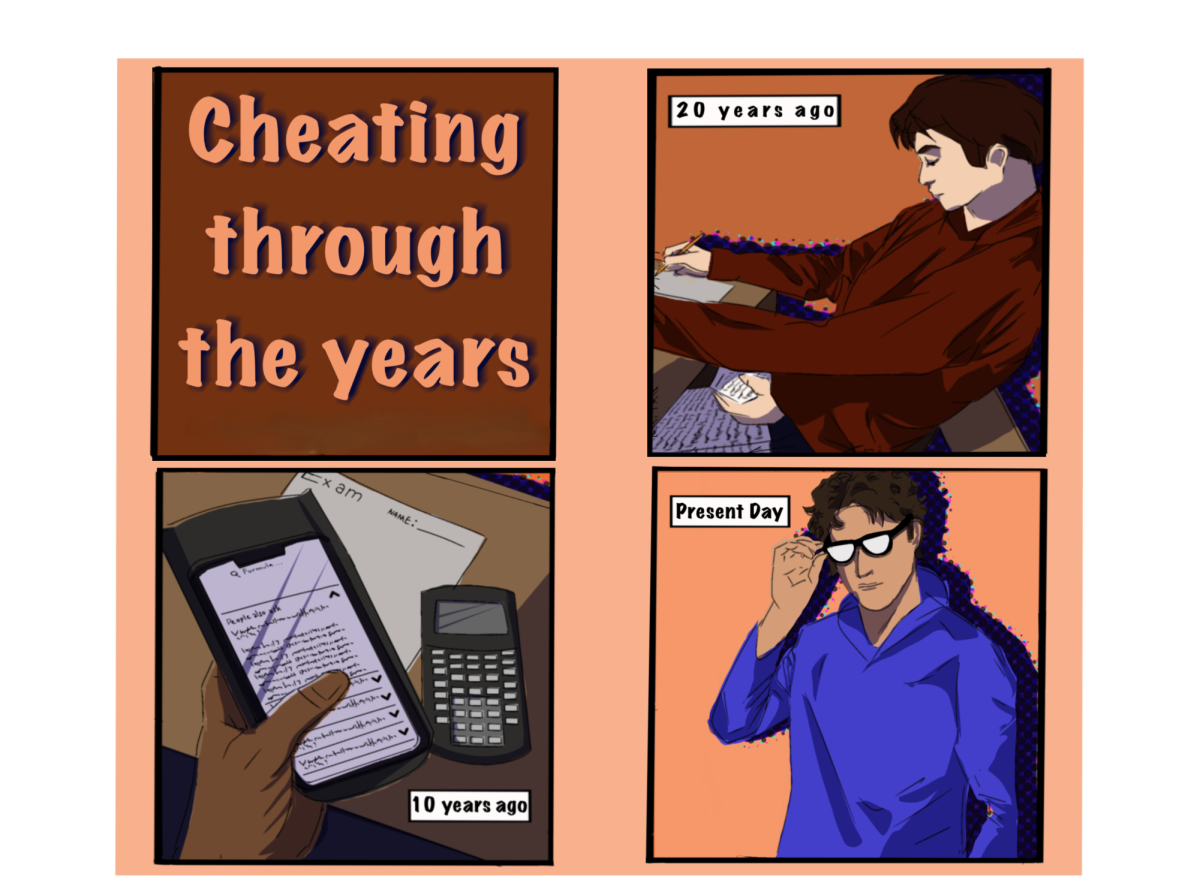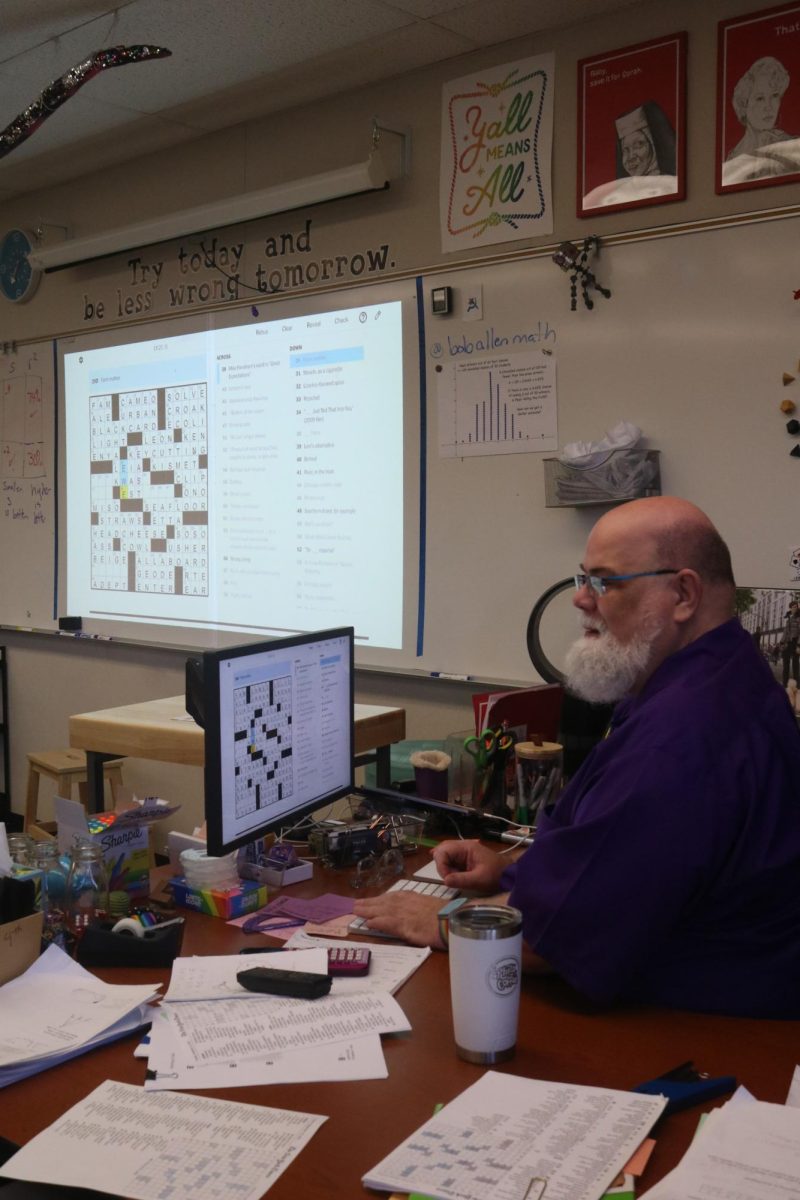Unreachable costs of living, declining educational quality and a dying planet. Energy and resources that could have been used to prevent any of these issues have instead helped stop a ‘threat to national security’ called TikTok.
The proposed ban on TikTok by Congress may protect American citizens from foreign data threats, but it infringes on many Americans’ livelihoods.
TikTok has done as much as it can to minimize risk for U.S. users by initiating Project Texas, which stores all American data in Texas through Oracle Corporation, a domestic company. All content moderation is done by American employees, who review an algorithm to minimize Chinese influence on content.
Although China has access to certain necessary data, it’s nonsensical to fear a company just because it’s foreign-based. There are many countries that use American apps and websites without any safeguards like Project Texas in place, and they’re never complaining.
Entertainment, obviously, isn’t constricted by borders.
The concept of a ban onTikTok is not just about the app. It’s an omen of how the government is starting to abuse its power.
Censorship is an issue that America looks down upon when it comes to other countries, but our citizens are on the brink of experiencing this themselves. This is in conflict with our seemingly revered First Amendment rights of free speech.
Congress’ bill to ban TikTok, H.R.7521, actually gives the government the right to ban any foreign app if it feels is a threat to national security. Seeing how TikTok obviously does not meet these standards, this means that in the future, any foreign app can be forbidden based purely on the government’s opinion of what is dangerous.
Congress’ intent with this law is to make as many of the biggest social media apps as possible American-based, strengthening the dominating tech-based oligarchy that has been festering. The government does not morally or constitutionally have the right to shut out citizens from the rest of the world.
Although the government cites the stealing of data as the main reason for this ban, The Washington Post reported that TikTok uses the same amount of data as other popular social media.
But Facebook is the app that has had numerous scandals involving stolen data, and there have been many safety allegations made against Google, the most visited website.
TikTok has also led to the creation of countless global communities. The app gives people a safe space to explore their interests and themselves, and make friends that they aren’t able to make offline.
Eight of 10 Gen Z American citizens with a physical disability say that TikTok has given them a space where they can comfortably share more of who they are with others, according to Big Village, a research-based website.
In addition, 90% of non-binary and transgender youth have explored new interests, furthering their self identity, thanks to TikTok.
In a culture that sidelines certain people as “other,” TikTok has become a place where everyone are equal and safe.
The app has popularized new vocabulary at a rapid pace, redefining how young people have conversations. The TikTok ban robs citizens of genuine connections and destroys a culture.
This ban would also leave a mark on national economy workings because it would destroy a sub-economy that generated more than $24 billion for the American economy in 2023, according to Global Trade Magazine. TikTok reported small business marketing on the app drove $15 billion of that.
Capterra reports that 77% of small businesses on TikTok reported sales attributable to the app increased within a year, and 78% say TikTok drives their profits, with most occurring under six months.
About 224,000 jobs rely on small businesses advertising on the app, according to TikTok. This is billions of dollars and a countless amount of jobs that would be lost if the ban goes into effect.
Content creators have had their lives changed on TikTok, and finding that level of success on other platforms is uncertain due to the changes in the app’s algorithm. TikTok has the best algorithm to show users current and relevant information.
Around 7 million small businesses are active on TikTok and all of their futures are in jeopardy without it. People’s livelihoods would be wiped out when influencers and businesses lose their core audience. These are completely legal jobs and methods of advertising, and prohibiting that denotes unconstitutionality as well.
The war on TikTok is against China, not the dangers with civilians. If the latter is what our government cares about, then there are other solutions rather than banning a popular app.
Instead, a data privacy law could be made to equally protect all citizens. The government could create a regulator agency to manage all things technology and the internet. That way the nation can adapt safely to the ever-changing online world.
If the government really cares about our personal safety, then banning TikTok is not the right move. Instead, it should start regulating data theft among the internet as a whole, and truly protect their citizens.
Or else, they might end up pledging loyalty to China on RedNote.
Should TikTok be allowed in America?-YES
Yaalini Augustine, Staff Writer
February 12, 2025
TikTok CEO Shou Chew, right, appeared before the House Energy and Commerce Committee to answer questions about the app’s data security in March 2023. TikTok’s parent company, ByteDance, sued the federal government in May 2024. The case reached the Supreme Court, which ordered TikTok to be sold to an American company or banned.
Story continues below advertisement
More to Discover
About the Contributors

Yaalini Augustine, Staff Writer
Yaalini is an excited new member of The Californian. After wanting to join for the past few years, she is looking forward to finally exploring the world of journalism as a senior. Yaalini can easily be found at home trying and often failing new projects and crafts. Crocheting is one of her favorites, and this year she’s trying out sewing and mehendi. She also loves reading, kpop, and binging shows for way too long with her pet birds. Yaalini is eager to make the most of her last year of high school and enjoy it as much as she can.

Aubrey Chan, Graphics Editor
Senior Aubrey Chan is a returning 2nd-year artist who is excited to be a part of the artistic side of The Californian. She was initially inspired by the variety of art pieces she saw in the newspaper during her first two years of high school, and after being an artist in her junior year, she is now eager to create more art with the other members. Outside of school, her hobbies expand beyond art as she is on a year-round swim team, plays guitar, and is an avid reader. This year, she is ready to be an editor in charge of the graphics portion of the paper and eager to see what new creativity sparks.


